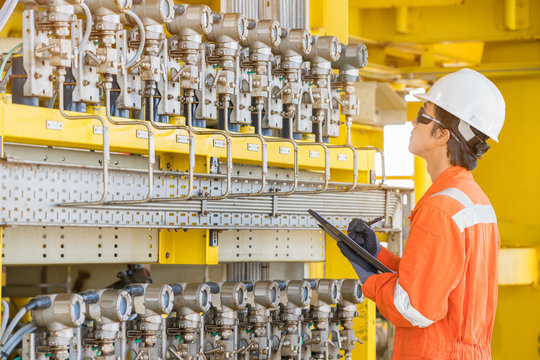Instrumentation engineering is a multifaceted discipline that intersects various domains of engineering, technology, and science. It is chiefly concerned with the design, development, and maintenance of instruments and systems that measure, control, and automate processes in industrial settings. This branch of engineering is indispensable across myriad sectors, including manufacturing, telecommunications, chemical processing, and environmental monitoring. To delineate the scope and significance of instrumentation engineering, we will explore its fundamental definitions, applications, instruments, interdisciplinary nature, emerging trends, and career prospects.
Definition and Scope
Instrumentation engineering is the engineering domain that specializes in the study of measurement and control processes. At its core, it encompasses the principles and technologies that facilitate the monitoring and control of physical quantities such as temperature, pressure, flow, level, and chemical composition. The field integrates knowledge from various branches of engineering, including electrical, mechanical, chemical, and computer engineering, to develop sophisticated systems that ensure precision and efficiency in diverse applications.
Application Areas
The applications of instrumentation engineering are vast and varied. Major areas include:
- Industrial Automation: Instrumentation plays a vital role in automating manufacturing processes. Advanced control systems, including programmable logic controllers (PLCs) and distributed control systems (DCS), utilize sensors and actuators that facilitate real-time monitoring and control of industrial operations.
- Environmental Monitoring: Modern instrumentation is pivotal for assessing and controlling environmental parameters. Systems designed for air quality monitoring, water quality assessment, and waste management are critical in today’s context of environmental sustainability.
- Healthcare: In the medical field, instrumentation engineering is crucial for developing diagnostic equipment such as imaging systems (MRI, CT scans), patient monitoring devices, and laboratory analysis tools. These instruments are integral to enhancing patient care and medical research.
- Telecommunications: The telecommunications sector relies heavily on instrumentation engineering for the design and implementation of communication systems. This includes signal processing, transmission, and network management instruments that ensure reliable connectivity.
- Aerospace and Defense: Instruments designed for aerospace applications are subjected to stringent standards. Robotics, navigation systems, and avionics instrumentation are essential for both civilian and military aviation.
Instrumentation Types
Instrumentation engineering encompasses a wide array of instruments that can be categorized based on their functions:
- Transducers: These devices convert physical quantities into signals. For instance, thermocouples and resistance temperature detectors (RTDs) convert temperature into electrical signals, essential for various control systems.
- Sensors: Integrated within control systems, sensors detect changes in physical parameters and relay information for processing. Pressure transducers, flow meters, and level sensors are common examples.
- Actuators: Actuators are responsible for executing control commands by converting signals into physical actions, such as valves and electric motors that regulate flow and movement in processes.
- Controllers: These devices process the signals from sensors and make decisions based on predetermined algorithms. The functionality of PID controllers is a cornerstone of many control systems.
- Data Acquisition Systems: These systems collect, analyze, and present data from various sources, enabling operators to make informed decisions based on real-time data.
Interdisciplinary Nature
Instrumentation engineering is inherently interdisciplinary. The collaborative synergy between various fields enhances the engineering solutions that underpin modern technology. For example, control theory, derived from electrical engineering, intersects with software engineering in developing automation protocols. Similarly, the need for precision and reliability in instrumentation often demands knowledge from physics, particularly in understanding the principles of measurement and error analysis. As industries continue to evolve, the demand for engineers who can navigate multiple disciplines will inevitably increase.
Emerging Trends in Instrumentation Engineering
The realm of instrumentation engineering is dynamic, responding to rapid technological advancements and societal needs. Significant trends include:
- Internet of Things (IoT): The integration of IoT into instrumentation systems allows for enhanced connectivity. Devices can now communicate and share data seamlessly, enhancing monitoring and control capabilities.
- Artificial Intelligence and Machine Learning: These technologies are being increasingly utilized to analyze data collected by instruments, improving predictive maintenance and operational efficiency.
- Smart Sensors: The advent of smart sensors that can process, analyze, and transmit data autonomously is redefining measurement systems. These devices can perform complex functions and adapt to environmental changes.
- Wireless Technologies: Wireless communication in instrumentation minimizes the need for cumbersome wiring, facilitating greater flexibility and scalability in system designs.
Career Opportunities
In conclusion, instrumentation engineering is a critical and expansive discipline that influences a multitude of sectors and applications. Its integration of advanced technology with the principles of measurement and control provides a foundation for innovation and efficiency in modern operations. As industries evolve, the demand for skilled professionals in this field will continue to rise, offering abundant opportunities for aspiring engineers.










